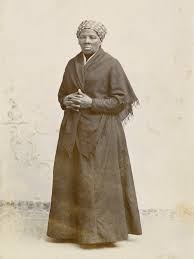The Legacy of Harriet Tubman: A Champion of Freedom

Introduction
Harriet Tubman, a name synonymous with courage and resilience, played a vital role in the abolition of slavery in the United States. Born into slavery around 1822 in Maryland, Tubman’s remarkable journey to freedom as an escaped slave later transformed her into a national icon. Her significant contributions to the Underground Railroad and her fight for justice resonate powerfully in contemporary discussions about equality and human rights.
Early Life and Escape
Harriet Tubman’s early life was fraught with hardship, having endured the brutal realities of slavery including physical beatings and family separations. In 1849, after years of oppression, Tubman made the courageous decision to escape to Philadelphia. Her newfound freedom ignited a fire within her to help others still trapped in the shackles of slavery.
The Underground Railroad
Upon escaping, Tubman became a key player in the Underground Railroad, a network of secret routes and safe houses established to aid enslaved African Americans in their quest for freedom. Over the next decade, she made an astonishing 13 missions back to the South, rescuing roughly 70 slaves, including her own family members. Tubman’s fearlessness and strategic prowess earned her the nickname “Moses” among those she helped, drawing parallels to the Biblical figure who led the Israelites out of bondage.
Civil War Contributions
During the Civil War, Tubman continued her fight against oppression, serving as a spy, nurse, and cook for the Union Army. She provided crucial intelligence that led to the liberation of 700 slaves during the Combahee River Raid in 1863. Tubman’s unwavering dedication not only advanced the cause of abolition but also paved the way for future women’s rights movements.
Legacy and Recognition
Despite her significant contributions, Tubman faced challenges in achieving recognition during her lifetime. However, today, she is celebrated as a symbol of bravery and tenacity. Numerous memorials, books, and films reflect her contributions to American history. The U.S. Treasury Department has even announced plans to feature her on the $20 bill, a move long-awaited by many as a recognition of her impact on the nation.
Conclusion
Harriet Tubman’s legacy remains crucial in today’s society as discussions around racial equality and social justice continue. Her life serves as a reminder of the enduring fight against oppression and the importance of standing up for justice. As we honor her contributions, we are reminded of the power of individual action in the broader pursuit of freedom and equality for all peoples.









